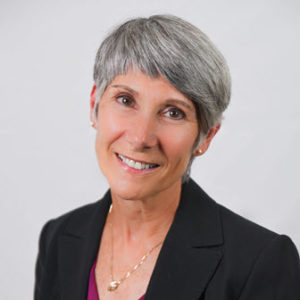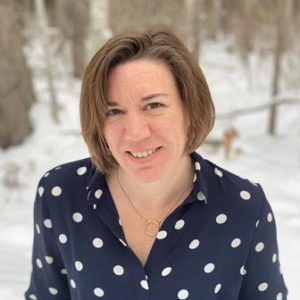According to the Carsey School of Public Policy, New Hampshire has the second-oldest population in the nation. The process of aging results in biological changes that make older people more sensitive to the impact of substance use. There are many factors that place older people at greater risk of misusing alcohol and other drugs. This topic is explored in this episode of The Partnership’s The Power of Prevention podcast. Host Christin D’Ovidio and guests Margaret Frankhasuer and Anne Marie Olsen-Hayward are Sounding the Alarm on Substance Misuse Among the Aging.
A recent survey conducted in 2017 found that about 20% of people between the ages of 60 and 64, and about 11% of those 65 and older, binge drank alcohol on a regular basis. Margaret Frankhasuer, an aging specialist with JSI Research and Training Institute, Inc. and Anne Marie Olsen-Hayward, coordinator of the statewide service, REAP, (Referral, Education, Assistance and Prevention) are uniquely qualified to help us understand this issue.
 As we age, we become more vulnerable to misusing substances for a variety of reasons. Physical changes alter the way alcohol and other substances are processed, impacting mood, memory, and movement. Significant events such as retirement, moving or grieving change our lifestyle and can lead to using substances as a form of coping. Chronic pain or illness can result in multiple prescriptions that can be unintentionally misused.
As we age, we become more vulnerable to misusing substances for a variety of reasons. Physical changes alter the way alcohol and other substances are processed, impacting mood, memory, and movement. Significant events such as retirement, moving or grieving change our lifestyle and can lead to using substances as a form of coping. Chronic pain or illness can result in multiple prescriptions that can be unintentionally misused.
“There are so many changes that people experience in older adulthood,” said Frankhasuer. “The death of a loved one, a spouse, a good friend, a sister or a brother, retirement, loss of a job means that there’s much more free time than there was previously that can result in boredom.” She added prescription drugs and cannabis are often misused, too. Older adults often take more than one prescription that can interact with alcohol. Older adults are using cannabis more too. As more bordering states expand access to cannabis products by making it legally available for recreational use, and in NH for therapeutic use, there is an increased perception that use is harmless. However, the use of cannabis presents many of the same challenges as alcohol, especially the high potency products.
Both guests identified COVID as further complicating the issue. In addition, older people often have mobility issues, which multiplies their isolation. Sometimes, alcohol use becomes a substitution for the more active pastimes once enjoyed or a way to get together in community living settings.
The good news is there are things family and friends can do to help and it starts with learning about resources and having a conversation. REAP raises awareness by going to the individual’s home and conducting assessments, and there is a senior companion program as well; both guests point to the importance of medical providers routinely asking questions about alcohol and other substance use.
REAP is a free home visiting program that helps New Hampshire residents over 60 find solutions, support, and services for various concerns, such as family and relationship stress, grief, and yes, problematic substance use. REAP is available in each of the state’s 10 counties, and can be reached through local community health centers or by calling ServiceLink at 1-603-957-5913.
For more information about this and other topics, the series is available on Stitcher, Apple Podcasts, Spotify, and Google Podcasts. You can subscribe to the series wherever you listen.
The Partnership @drugfreeNH also hosted a training on December 16, 2022 titled “Substance Use Disorder in Older Adults: An Overlooked, but Important Population”. This training was conducted by Margaret Franckhauser, MS, MPH, RN, Director of Aging Services, JSI Research and Training Institute, Inc., and Anne Marie Olsen-Hayward, LICSW, CDP, REAP Director, Seacoast Mental Health Center. Watch the recording here!
 Margaret Franckhauser, MS, MPH, RN, is the Director of Aging Services at CHI/JSI. She has over 40 years’ of experience in health care as a registered nurse, nurse practitioner, program manager, community-based organization administrator, and public health consultant. Margaret has deep expertise in systems of care designed to serve older adults and is certified in older adult behavioral health and Reframing Aging – a social change initiative designed to improve the public’s understanding of aging.
Margaret Franckhauser, MS, MPH, RN, is the Director of Aging Services at CHI/JSI. She has over 40 years’ of experience in health care as a registered nurse, nurse practitioner, program manager, community-based organization administrator, and public health consultant. Margaret has deep expertise in systems of care designed to serve older adults and is certified in older adult behavioral health and Reframing Aging – a social change initiative designed to improve the public’s understanding of aging.
 Anne Marie Olsen-Hayward is the Director of REAP and a clinical therapist at Seacoast Mental Health Center. She is a Licensed Clinical Social Worker and holds a master’s degree in Social Work from the University of New Hampshire, where she is an adjunct faculty member in the Social Work Department. She previously worked as a therapist at Frisbie Memorial Hospital Geriatric Psychiatry Services, where she guided patients and families throughout the disease progression. Anne Marie is the president-elect of the NH NASW, participating in committees and community groups which focus on geriatrics.
Anne Marie Olsen-Hayward is the Director of REAP and a clinical therapist at Seacoast Mental Health Center. She is a Licensed Clinical Social Worker and holds a master’s degree in Social Work from the University of New Hampshire, where she is an adjunct faculty member in the Social Work Department. She previously worked as a therapist at Frisbie Memorial Hospital Geriatric Psychiatry Services, where she guided patients and families throughout the disease progression. Anne Marie is the president-elect of the NH NASW, participating in committees and community groups which focus on geriatrics.

